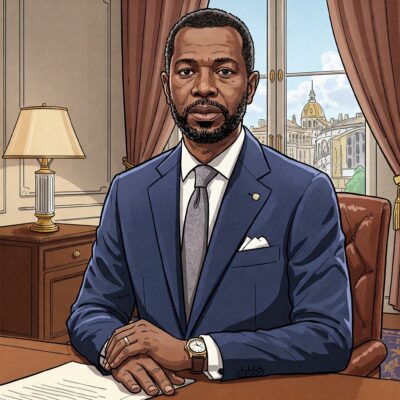Diplomats represent their country in international relations, working to build alliances, negotiate agreements, and resolve conflicts. They play a crucial role in advancing their nation’s interests in areas such as trade, security, and cultural exchange.
What is a typical day as a Diplomat?
– Representing their country at meetings, conferences, or events
– Negotiating treaties or agreements on trade, security, or environmental issues
– Monitoring and reporting on political, economic, or social developments in their host country
– Engaging in public diplomacy to strengthen bilateral or multilateral relations.
What else might they be expected to do?
– Assist citizens abroad with consular services, such as passport renewal or legal aid
– Organize cultural or trade events to promote their country’s interests
– Work on crisis management during emergencies, such as evacuations or natural disasters
What type of training is needed for this career path?
– A Bachelor’s degree in International Relations, Political Science, Law, or a related field is typically required.
– Advanced training or a Master’s degree in Diplomacy, International Law, or Public Policy is advantageous.
– Proficiency in foreign languages and cultural studies enhances effectiveness.
What kind of personality is needed to excel in this career path?
– Diplomatic, adaptable, and resilient individuals thrive in this role.
– Big 5 traits: Extraversion and Agreeableness.
– Myers-Briggs types: ENFJ or ENTJ often align with this career.
What kind of interests do people in this career path have?
– Passion for international relations, negotiation, and cultural exchange (Enterprising and Social traits).
– Interest in global affairs, law, and conflict resolution.
– Interests & Aptitude: Investigative (I), Social (S), and Enterprising (E)
Are there any innate skills or aptitudes required?
– Strong communication and negotiation skills for representing national interests
– Analytical skills to assess political and economic developments
– Cultural awareness and adaptability for working in diverse environments
What challenges can I expect to face if I pursue this career path?
– Managing the stress of high-stakes negotiations or crises
– Balancing long hours and frequent travel with personal life
– Navigating complex political landscapes and competing interests
What are the job prospects for this path in Kenya and Africa? What about International prospects for a Kenyan citizen?
– Kenya and Africa: Diplomats are essential for advancing regional cooperation and representing national interests globally. Opportunities exist in foreign ministries, embassies, and international organizations.
– International: Kenyan diplomats can serve in global roles with organizations like the UN, African Union, or trade missions, especially with expertise in African geopolitics.
What should I focus on if I choose to pursue this career?
– Gain expertise in international law, diplomacy, and negotiation through training or internships.
– Build language proficiency and cultural knowledge relevant to desired postings.
– Develop networking skills to strengthen bilateral and multilateral relationships.
Which other careers or job roles can I progress to?
– Ambassador or Consul General
– Policy Advisor in Foreign Affairs
– International Organization Representative
– Academic Lecturer or Researcher in Diplomacy
– Consultant for International Relations

